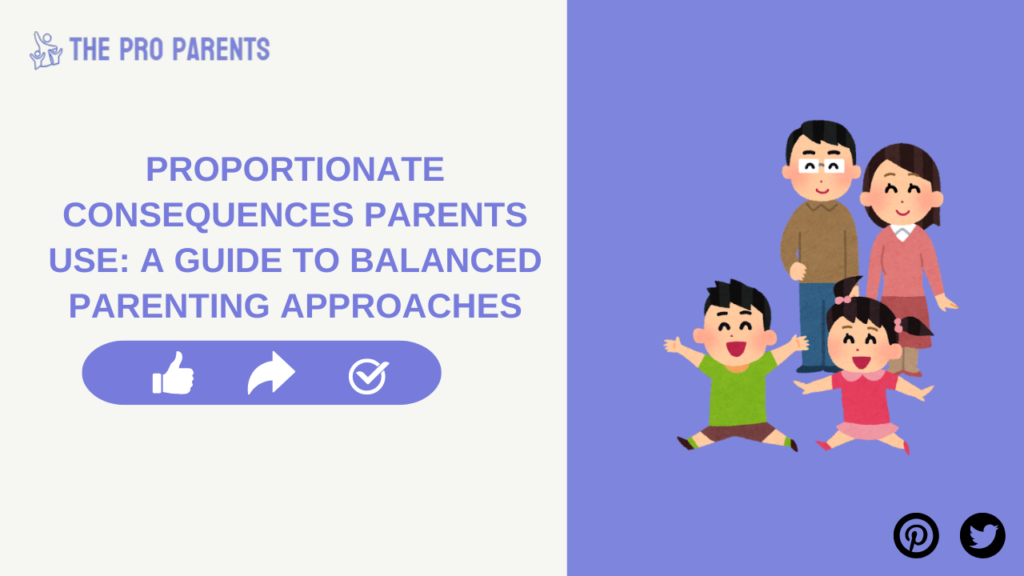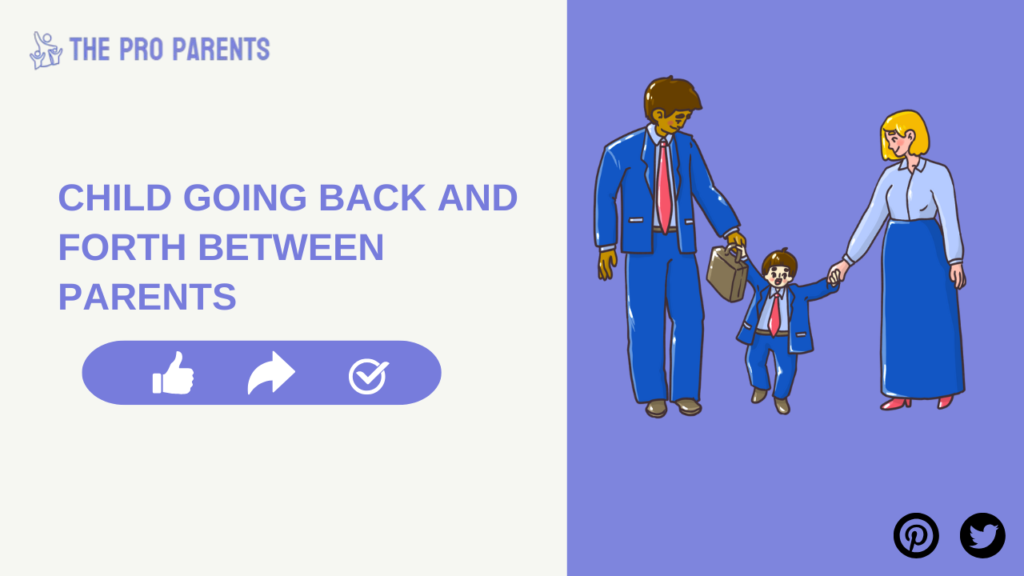Parenting is a rewarding yet challenging adventure. Every parent strives to instill responsibility, respect, and positive behavior in their child, but it’s not always easy to balance these goals with effective discipline. This is where proportionate consequences in parenting come into play.
Table of Contents
Proportionate consequences parents are all about aligning the outcomes of a child’s actions with their behavior—in a fair, constructive, and educational way. This approach avoids over-correcting or under-responding, creating a discipline strategy that helps nurture your child’s growth while maintaining a loving, respectful relationship.
In this guide, we’ll explore what proportionate consequences are, their psychological importance, and how you can effectively implement them across various ages and situations. By the end, you’ll have actionable strategies to foster a positive, nurturing environment while shaping healthy discipline.
Related Read: Is It My Fault My Kid Has Cavities?
What Are Proportionate Consequences in Parenting?
Proportionate consequences in parenting refer to corrective actions that correspond logically and fairly to a child’s misbehavior. The goal is not to punish but to teach children the connection between their actions and the results.
For example:
- Proportionate Consequence: A child who draws on the walls cleans the mess they made.
- Disproportionate Consequence: Taking away all toys for an entire week for the same action.
Disproportionate responses often result in resentment and confusion, while proportionate consequences teach accountability and provide an opportunity for growth.
Examples of Proportionate vs. Disproportionate Responses
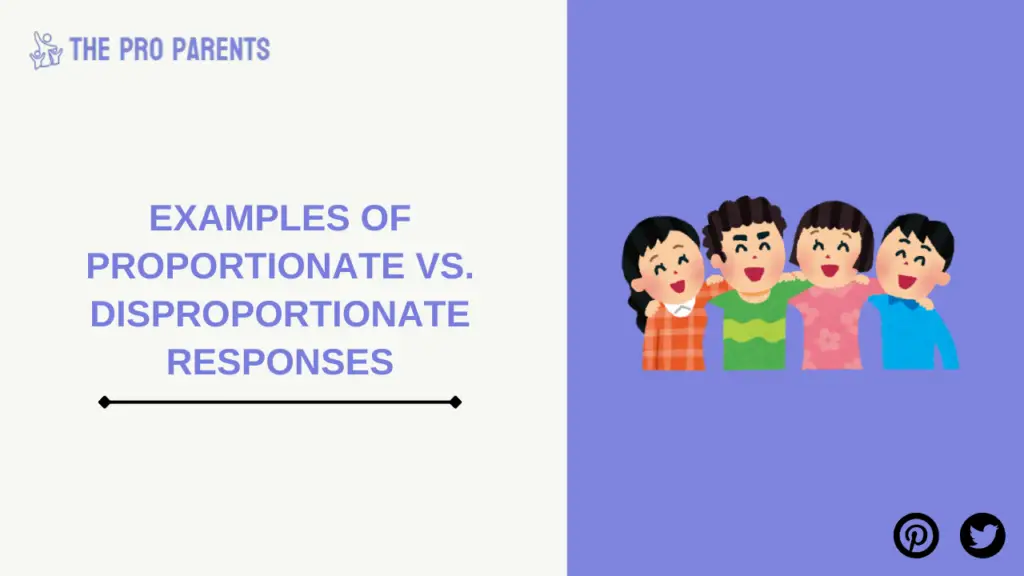
- Scenario 1: Your child forgets to turn off the TV before going to bed.
- Proportionate: They lose TV privileges for the next evening.
- Disproportionate: You ban screen time for an entire month.
- Scenario 2: Your teenager misses their curfew by 30 minutes.
- Proportionate: They lose 30 minutes of freedom on their next outing.
- Disproportionate: They’re grounded for two weeks.
Proportionate consequences parents are effective because they emphasize logic, accountability, and fairness.
Related Read: Why Do Kids Have Silver Teeth?
The Psychology Behind Proportionate Consequences
Our discipline choices significantly impact a child’s mental and emotional development. When consequences align with behavior, children are more likely to absorb lessons in a meaningful way. Conversely, disproportionate discipline may lead to feelings of shame, confusion, or defiance.
Why Proportionate Consequences Work
- They promote cause-effect learning. Children better understand how their actions lead to specific outcomes.
- Proportionate approaches foster trust and respect, showing your child you’re fair and logical.
- They encourage a growth mindset, helping children see mistakes as opportunities to learn.
Research & Psychological Theories
Psychological studies suggest children respond best to discipline strategies emphasizing natural consequences. According to Alfie Kohn, a parenting expert and author, “Punishments and rewards are manipulative and undermine intrinsic motivation. True learning comes from understanding.”
Common Mistakes to Avoid
- Overreaction: Punishments that are too harsh can break trust and negatively impact self-esteem.
- Lack of Consistency: Rules and consequences need to remain predictable to be effective.
- Ignoring Teachable Moments: Don’t just discipline; explain why their behavior matters.
By grounding discipline in psychology, proportionate consequences help nurture emotional intelligence and adaptive behavior.
Age-Appropriate Consequences: Tailoring Discipline to Developmental Stages
Children grow through vastly different developmental stages, and their ability to understand consequences evolves over time. Here’s how parents can adjust proportionate consequences for each age group:
Toddlers (Ages 1-3)
Toddlers are too young to grasp complex logic, so focus on immediate, simple consequences:
- Scenario: A toddler throws toys during playtime.
- Consequence: Remove the toys for a short period and explain, “We don’t throw toys because someone could get hurt.”
Preschoolers (Ages 3-5)
Preschoolers are beginning to understand actions and consequences:
- Scenario: Your child refuses to clean up their toys.
- Consequence: They can’t engage in a new activity until they finish cleaning up.
School-Aged Children (Ages 6-12)
By this age, kids can connect certain behaviors with long-term effects:
- Scenario: Your child neglects their homework to watch TV.
- Consequence: Screen time is taken away until the homework is complete.
Teenagers (Ages 13+)
With teens, tie consequences to privileges. Engage in discussions for deeper understanding:
- Scenario: Your teen skips chores all week.
- Consequence: They miss out on weekend plans until the chores are completed.
Every stage presents new challenges, but tailoring consequences to developmental understanding ensures their effectiveness.
Related Read: Famous Parenting Strategies from Chelsea Acton
Balancing Discipline and Nurturing: Why It Matters
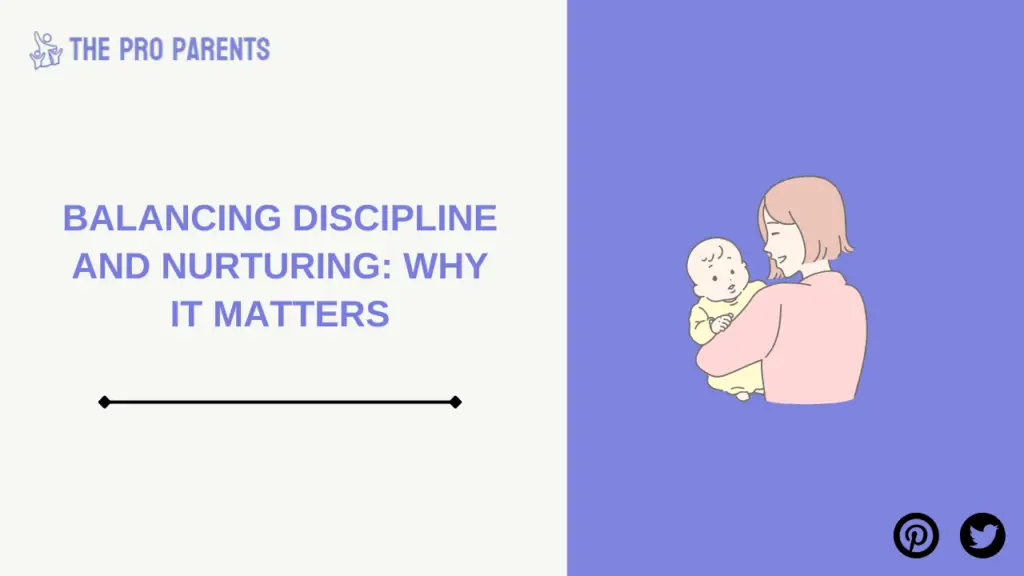
Proportionate consequences parents don’t mean being overly strict; they’re about striking the perfect balance between discipline and love. Children thrive in environments where they feel supported, even when facing corrective measures.
Real-Life Scenarios of Balanced Approaches
- Scenario: A child lies about finishing their homework.
- Response:** Stay calm. Address why lying is harmful, and require them to allocate extra time to complete it honestly.
- Scenario: A child argues during screen time limits.
- Response: Empathize with their frustration, but uphold the agreed rule firmly.
Effective discipline enhances trust, ensuring children feel secure even when they’re learning tough lessons.
Proportionate Consequences in Specific Situations
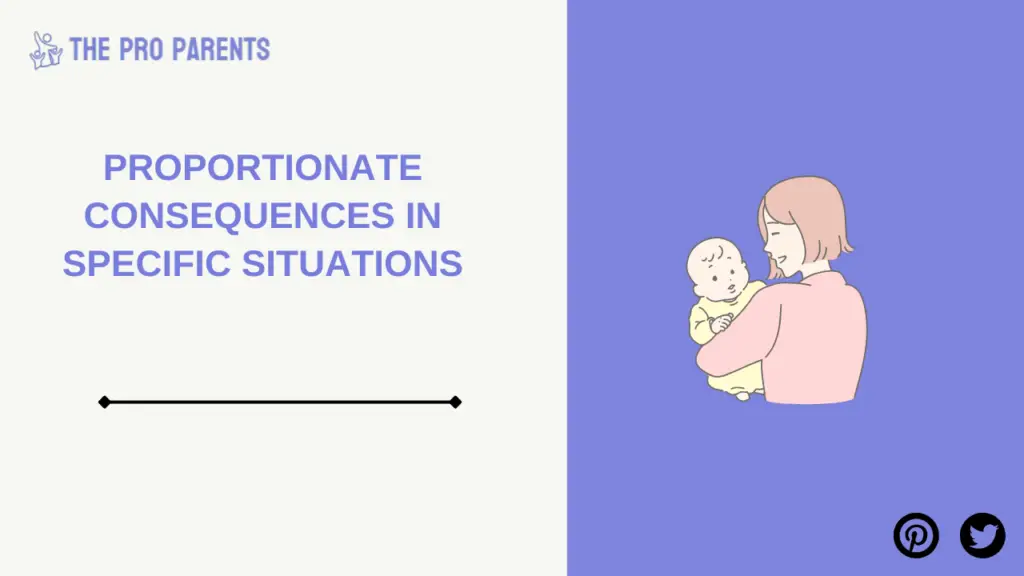
Below are tailored examples for common parenting challenges:
– Lying
Response: Discuss the importance of honesty and ask them to correct the lie.
– Homework Neglect
Response: Limit distractions and require them to complete homework before leisure activities.
– Sibling Rivalry
Response: Mediate conflict and encourage each child to find ways to make amends.
– Screen Time Issues
Response: Reinforce agreed limits firmly without compromising consistency.
For each situation, align the consequence logically with the issue at hand.
How to Avoid Overcorrection
Overcorrection can lead to long-term resentment. Here’s how to ensure your disciplinary approach remains healthy and realistic.
Checklist for Proportionate Responses
Ask yourself these questions before imposing a consequence:
- Is the consequence directly related to their behavior?
- Does it teach a meaningful lesson?
- Is the response age-appropriate and fair?
Refining your approach through reflection ensures your parenting evolves alongside your child.
Expert Tips for Implementing Proportionate Consequences
Top child development experts suggest the following:
- Stay Consistent: Use written agreements to clarify household rules.
- Focus on Connection: Replace shaming with constructive feedback.
- Leverage Resources: Use parenting books or apps for tailored guidance.
Consistency and communication are your greatest allies in discipline.
Frequently Asked Questions About Proportionate Consequences
What are proportionate consequences in parenting?
Proportionate consequences are fair, logical outcomes tied to a child’s actions, teaching accountability and positive behavior without harsh punishment.
Why are proportionate consequences better than traditional punishments?
They focus on teaching cause-effect connections, building trust, and fostering responsibility, unlike punishments that may create fear or resentment.
How can I implement proportionate consequences for different age groups?
Adapt consequences to the child’s age, using simple, logical actions for toddlers and privilege-based consequences for teens.
What should I do if my child doesn’t respond to proportionate consequences?
Ensure the consequences are fair and consistent. Communicate calmly, explain their purpose, and adjust as needed while staying firm.
How do proportionate consequences support a healthy parent-child relationship?
They build trust and emotional intelligence by focusing on fairness and teaching lessons, creating a nurturing and respectful environment.
Proportionate Discipline for a Healthier Parent-Child Relationship
Proportionate consequences build trust, responsibility, and positive behavior patterns—all within a nurturing family dynamic. By focusing on fairness and logic, parents cultivate an environment where children learn, grow, and thrive.
Start implementing this balanced approach today, and watch your family dynamics flourish!
